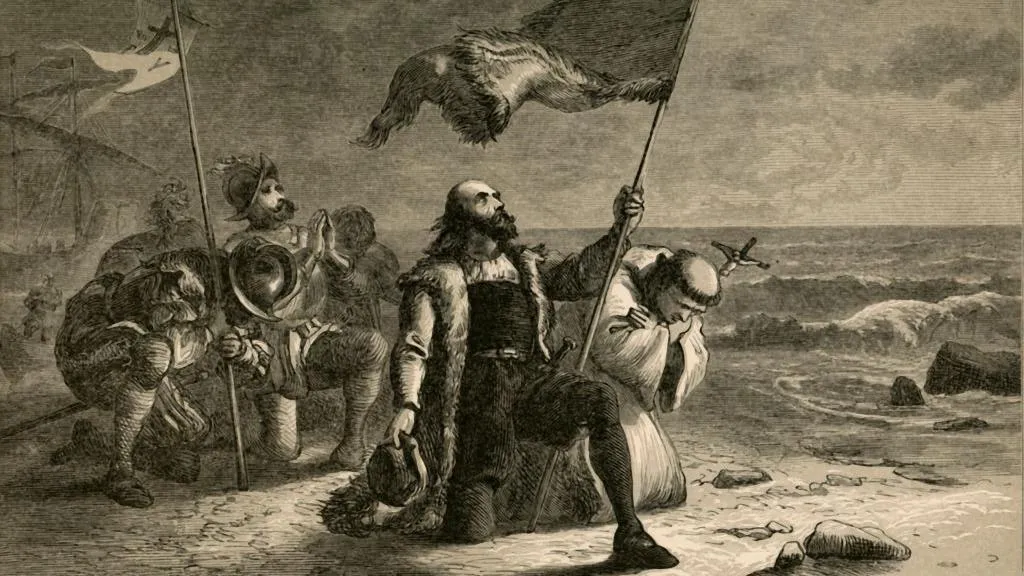Unveiling Columbus: New Study Suggests Spanish and Jewish Roots
3 min read
Christopher Columbus arrived in the Americas in 1492, beginning a period of European contact with the region

Christopher Columbus arrived in the Americas in 1492, beginning a period of European contact with the region
A recent genetic study led by Spanish scientists has brought forth a compelling argument that Christopher Columbus, the renowned explorer whose 1492 voyage reshaped world history, was likely of Spanish and Jewish descent. This revelation challenges the long-held belief that he was an Italian born in Genoa.
The researchers propose that Columbus may have been born in western Europe, potentially in the city of Valencia. They suggest that he might have concealed his Jewish identity or converted to Catholicism as a means of evading religious persecution, particularly during a time when Jews faced severe discrimination in Spain.
This study adds to the ongoing debate regarding Columbus’s origins, which has seen numerous claims from various countries asserting him as their own. Over the years, historians have posited around 25 different theories about his birthplace, including locations as diverse as Poland, Great Britain, Greece, and Hungary.
The findings of this latest research stem from over two decades of investigation. The project commenced in 2003 when José Antonio Lorente, a professor of forensic medicine at Granada University, and historian Marcial Castro exhumed what they believed to be Columbus’s remains from Seville Cathedral.
Columbus passed away in Valladolid, Spain, in 1506, expressing a desire to be buried in the Caribbean on Hispaniola. His remains were relocated multiple times over the centuries, ultimately resting in Seville, which provided a unique opportunity for genetic analysis.
The researchers obtained DNA samples from Columbus’s tomb as well as from the remains of his son, Hernando, and brother, Diego. This genetic material was compared to that of historical figures and relatives in an effort to solve the mystery of Columbus’s origins.
The prevailing narrative suggested that Columbus was born in Genoa in 1451 to a family of wool weavers. However, the new research posits that he likely spent much of his life in Spain, specifically Valencia, and had Jewish roots. This assertion aligns with historical context, as approximately 300,000 practicing Jews lived in Spain before the 1492 decree that forced them, along with Muslims, to either convert to Catholicism or leave the country.
In a recent television documentary titled Columbus DNA: His True Origin, Professor Lorente declared the study’s results “almost absolutely reliable.” The program aired on Spain’s national broadcaster RTVE, coinciding with Spain’s National Day, which commemorates Columbus’s arrival in the Americas.
The implications of this research are significant, as they invite a reevaluation of Columbus’s legacy and the broader historical narrative surrounding the Age of Exploration. Columbus’s arrival in the Caribbean marked the onset of extensive European contact with the Americas, leading to conquest, colonization, and the devastating impact on indigenous populations due to disease and warfare.
This new perspective not only reshapes the understanding of Columbus’s identity but also raises important questions about the cultural and religious complexities of the time. It serves as a reminder of the intricate tapestry of history, where identity and legacy often intersect in unexpected ways.
As discussions around Columbus’s origins continue, this study sheds light on the significance of genetic research in uncovering historical truths. It challenges scholars and the public alike to reconsider long-standing assumptions and embrace a more nuanced view of historical figures who played pivotal roles in shaping our world.
In summary, the revelation of Columbus’s probable Spanish and Jewish heritage adds a fascinating layer to his story, inviting both admiration and scrutiny of a man whose voyages fundamentally altered the course of history.